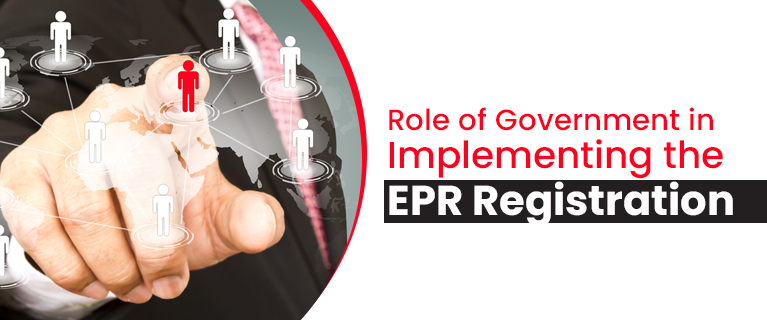Role Of Government In Implementing The EPR Registration
Extended Producer Responsibility (EPR) Registration is a key policy approach aimed at addressing the environmental impact of products throughout their lifecycle. The successful implementation of EPR Registration requires the active involvement and support of governments. In this blog, we will delve into the crucial role of government in EPR implementation, exploring the various aspects and responsibilities that governments undertake to drive sustainable waste management.
1. Policy Development and Regulation
Government plays a fundamental role in developing policies and regulations that establish the framework for EPR Registration. They define the scope of products covered under EPR, set recycling targets, and specify the roles and responsibilities of producers, consumers, and waste management entities. Governments also establish guidelines for reporting, monitoring, and compliance to ensure effective implementation of EPR initiatives.
2. Stakeholder Engagement and Collaboration
Government agencies actively engage with various stakeholders to facilitate EPR registration. They foster collaboration with producers, industry associations, consumer organizations, and waste management entities to gain insights, address concerns, and promote effective partnerships. Governments also engage in public awareness campaigns to educate and involve citizens in waste management practices, encouraging their participation in recycling programs and responsible consumption.
3. Infrastructure Development
Government support is crucial in developing the necessary infrastructure to facilitate EPR registration. This includes establishing collection centres, recycling facilities, and waste management systems. Governments may invest in building the required infrastructure or provide incentives and grants to encourage private sector participation. They play a pivotal role in coordinating and regulating the waste management infrastructure to ensure its efficiency and compliance with environmental standards.
4. Monitoring and Enforcement
Governments are responsible for monitoring the compliance of producers with EPR registration. They conduct regular inspections, audits, and assessments to ensure that producers fulfil their obligations regarding waste collection, recycling, and disposal. Governments enforce penalties and sanctions against non-compliant entities to maintain the integrity and effectiveness of EPR systems. They also collaborate with enforcement agencies, such as environmental protection bodies, to enforce waste management regulations and uphold environmental standards.
5. Research and Development
Government involvement in EPR registration extends to supporting research and development initiatives aimed at improving waste management technologies, recycling processes, and sustainable packaging practices. They allocate funds for research projects, collaborate with academic institutions, and promote innovation in waste reduction and recycling technologies. Government-backed research and development efforts foster advancements in recycling infrastructure, waste sorting methods, and sustainable product design.
6. Policy Evaluation and Revision
Governments regularly evaluate the effectiveness of EPR registration policies and make necessary revisions to enhance their impact. They review recycling rates, waste reduction targets, and stakeholder feedback to identify areas for improvement. By conducting comprehensive assessments and incorporating feedback from stakeholders, governments can refine and strengthen EPR policies, ensuring their alignment with evolving environmental goals.
Read Also This - Challenges and Opportunities in Implementing EPR RegistrationConclusion
The role of the government in EPR registration is indispensable. Governments provide the regulatory framework, engage stakeholders, develop infrastructure, monitor compliance, and support research and development efforts. By actively participating in EPR initiatives, governments drive sustainable waste management practices, promote environmental stewardship, and foster a circular economy. With government leadership and collaboration between stakeholders, EPR can be effectively implemented, resulting in reduced environmental impact, increased recycling rates, and a more sustainable future for generations to come.




Comments
Post a Comment